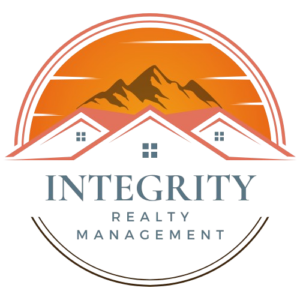You’ve looked at your rental income. You’ve calculated your Net Operating Income (NOI). (Not sure how? We’ve got a full breakdown here.)
Now it’s time to zoom out and ask the big question: Is this property worth holding onto, or should I scale up, remodel, or sell?
That’s where Gross Rent Multiplier (GRM) and Capitalization Rate (CAP Rate) come in. These two numbers help you assess long-term profitability and risk, so you’re not flying blind with your investments.
What is Gross Rent Multiplier (GRM)?
GRM is a used to estimate a property’s value based on its rental income. To calculate GRM, simply divide the property’s market price by its gross annual rental income:
GRM is a quick way to compare the price of a property to the income it generates, before accounting for expenses.
Here’s the formula:
GRM = Property Price ÷ Annual Gross Rental Income
GRM = Property Market Value / Annual Gross Rental Income
If a property costs $1,000,000 and brings in $200,000/year in rent
GRM = $1,000,000 / $200,000 = 5.0
A lower GRM (like 5.0) usually means a property offers a faster return on investment. A higher GRM might signal that the property is overpriced, or that rental income is low compared to the price.
What’s a “good” GRM in Colorado?
It depends on the location, but many markets in Colorado see GRMs between 11 and 14 for single- and multi-family homes.
📌 Use GRM when:
- • You’re comparing multiple properties at a glance
- • You want a ballpark view of income potential
- • You’re screening investment opportunities in the same market
⚠️ Heads up: GRM doesn’t factor in expenses. That’s where CAP Rate comes in.
What is Capitalization Rate (CAP Rate)?
CAP Rate = Net Operating Income (NOI) / Property Market Value
NOI represents the property’s total income minus operating expenses such as property taxes, insurance, management fees, maintenance costs, and vacancy losses.
CAP Rate tells you what percent of the property’s value you’re earning back each year, after expenses.
Here’s the formula:
CAP Rate = Net Operating Income (NOI) ÷ Property Market Value
for a property has an NOI of $80,000 and is worth$1,000,000CAP rate: $80,000 / $1,000,000 = 8%
A higher CAP rate = potentially higher returns (but usually higher risk).
A lower CAP rate = more stability (but lower returns).
What’s normal in Colorado?
In competitive markets like Boulder or Denver, CAP rates for multifamily properties range between 4% and 6.5%, according to the Apartment Loan Store. That reflects steady demand and lower risk, but if you’re after bigger returns, you might look for properties with CAP rates above 7% in up-and-coming areas.
📌 Use the CAP Rate when:
- • You want a deeper dive into your rental’s performance
- • You’re evaluating whether to buy, hold, or sell
- • You need to compare risk vs. reward
GRM vs. CAP Rate: When to Use Each
| Metric | What It Tells You | When to Use It |
| GRM | Snapshot of gross income potential | Quick comparisons, early screening |
| CAP Rate | Actual return after expenses (NOI) | In-depth analysis, long-term decisions |
Together, GRM and CAP Rate give you a fuller picture.
Use GRM to spot opportunities. Use the CAP Rate to decide if they’re worth pursuing.
How We Use These Metrics at Integrity Realty Management
At Integrity Realty Management, we don’t just manage properties—we help owners grow smarter.
We use GRM and CAP Rate (along with NOI and ROI) to:
- • Evaluate your property’s performance
- • Spot underperforming assets
- • Recommend when it’s time to remodel, sell, or scale up
- • Help you build a portfolio that works for you, not the other way around
But we don’t stop at analysis—we actively manage your property to keep those GRM and CAP Rate numbers as strong and profitable as possible. Our goal? To maximize your long-term returns and protect your portfolio’s health.
Whether you own one home in Thornton or a dozen units across Boulder and Longmont, we’ll give you clear numbers—and a strategy you can act on.
Ready to See How Your Property Stacks Up?
Request your free analysis, and we’ll run the numbers for you.
We’ll show you exactly how your rental is performing—and what you can do next to boost profits and protect your investment.

